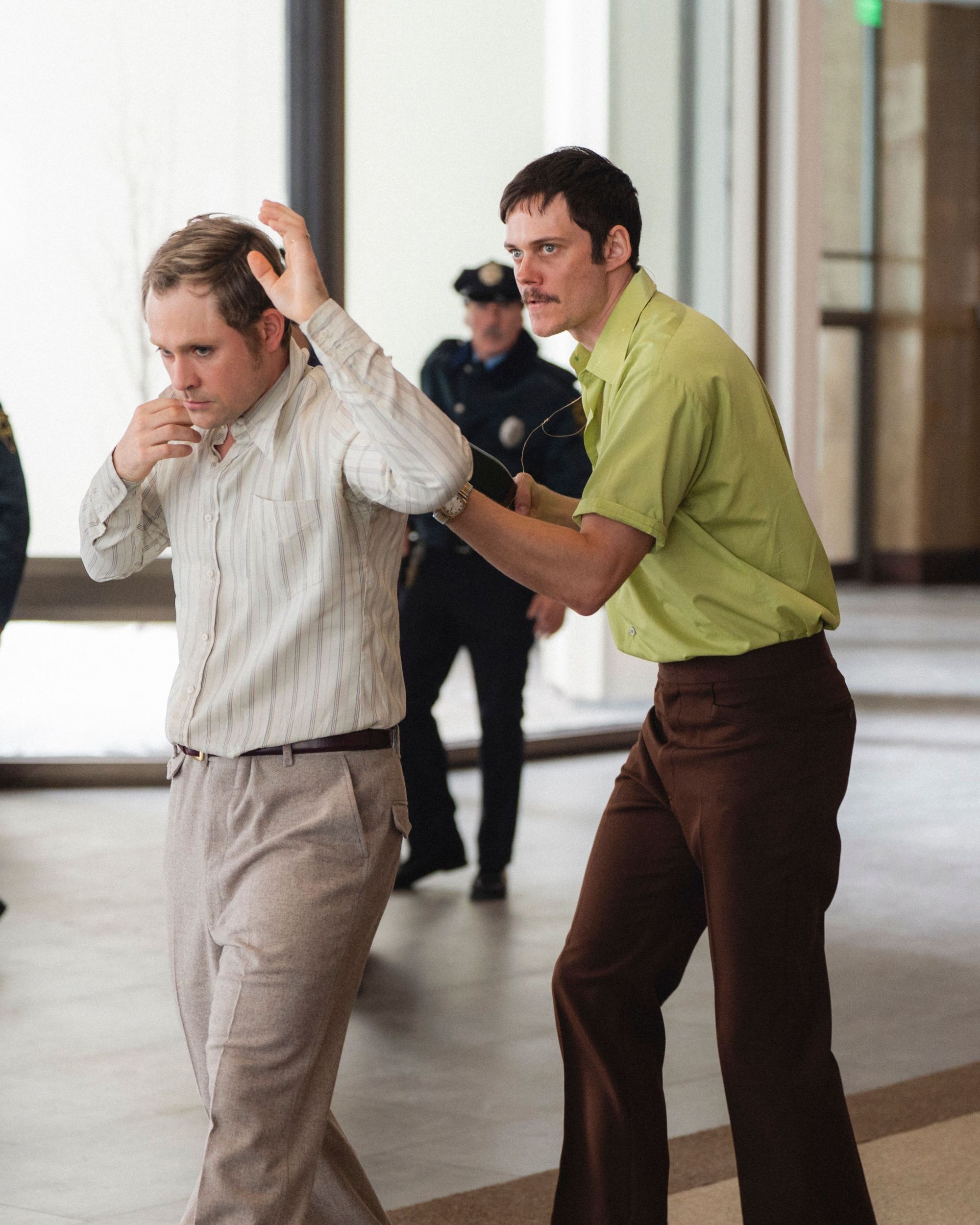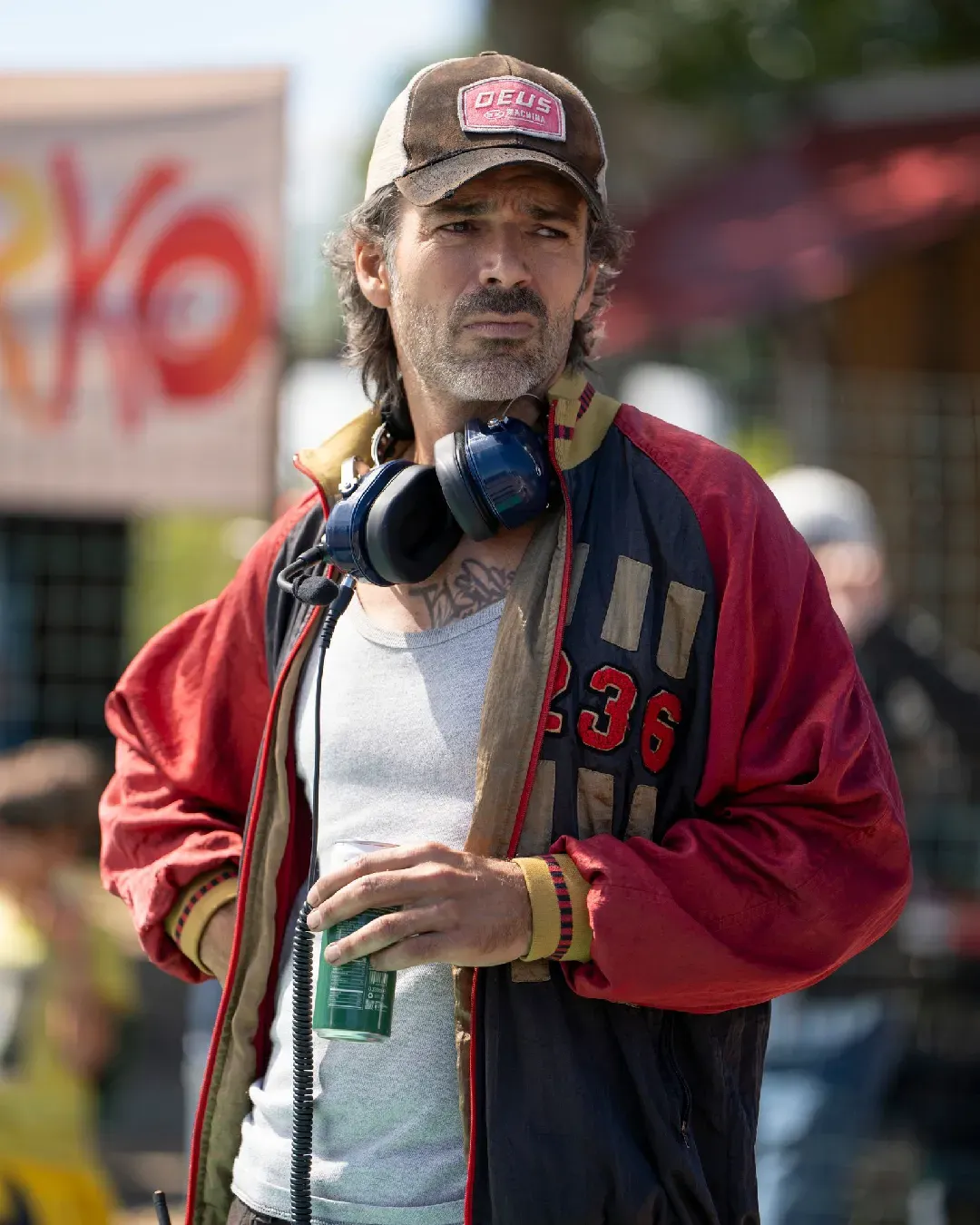
Five films to chronicle Yorgos Lanthimos' Hollywood landing From Dogtooth to Kinds of Kindness
With Kinds of Kindness, the Greek director and screenwriter Yorgos Lanthimos returns to his roots. He leaves behind the popularity of Poor Things!, the work that earned him the Golden Lion at the Venice Film Festival in 2023 and brought his muse Emma Stone to her second Oscar statuette, to embrace a cinema that calls him from the past and to which he returns. The reason is simple: the re-encounter between the author and Efthymis Filippou, the trusted screenwriter with whom Lanthimos took his first steps, bringing to the screen the films that, one after another, opened him to fame. Although few may know that the director's career began with an improbable 2001 comedy titled O kalyteros mou filos - from Greek, My Best Friend - it was with Kinetta in 2005 that he started his climb, writing alongside Yorgos Kakanakis and waiting four years to start the collaboration with Filippou, for the screenwriter's debut with Dogtooth. The magic - or madness, some would say - was made. In the coincidence of ecstatic and immobile surrealism, where stasis reverberates in the text, in the acting, in the direction, and in the relationships of the characters, a cinema that is loved and hated is born from the meeting of these two indecipherable minds. And sometimes it is loved to hate and other times it is hated to love.
Five films, up to the triptych Kinds of Kindness, to outline the artistic and expressive vision of two artists who have brought Greece to the heights of Hollywood. A compendium to frame the duo's poetics and shed some light on Efthymis Filippou. A screenwriter who, while seeing his partner shine even with films not written together - The Favourite and, indeed, Poor Things!, scripted with another genius like Tony McNamara - deserves to be recognized also for a writing gem like Miserere, a 2018 work by director Babis Makridis about a man dependent on the need for sadness. But that is another story.
Dogtooth (2009)
It's 2009 and Yorgos Lanthimos arrives at the Cannes festival. Not only does he arrive, but he wins the award for best film in the Un certain regard section. His film is a world, one of many he will build throughout his career. The micro-universe of Dogtooth, co-written with Filippou's metaphysical pen, is the perimeter of a house, the enclosure of a family, a small prison in which the members themselves do not know they are confined (at least not all of them) and in which they are locked up under rules and imperatives that do not correspond to the rules and imperatives of the rest of society. Mother, father, daughters, and son are the only members of a community all their own and, being a separate jurisdiction, the members act accordingly. To dictate every criterion, the right words are needed and the right words are those at the center of a story in which the co-screenwriters create a universe entirely apart. Where water, food, party, dance, shoes, teeth do not correspond to the water, food, party, dance, shoes, and teeth to which others refer. Dogtooth establishes its own dictionary and so do the authors, for a film that would firmly establish them in the cinematic landscape. The characters use their own vocabulary which, in its own way, is the same that Lanthimos and Filippou use to describe their cinema. A film that is a programmatic statement, an auteur vision to hang on the wall.
Alps (2011)
Almost thirteen years apart, but among all of Lanthimos' filmography, not coincidentally always in combo with Efthymis Filippou, Alps is the work that most communicates with Kind of Kindness, particularly with the second episode of the film divided into chapters. Substitution, the other from oneself, filling a void with something unreal are the threads that connect the films and showed in 2011 with Alps how all the characters in the Greek director's films are nothing but masks. Roles that people often self-assign, or that, when imposed from above, always have a task to perform. In Alps four people have set up a company to replace those who have passed away and whom their loved ones still want to have close. An identification job - which also communicates with Lanthimos' famous short Nimic, a neologism that combines the mimesis of others' gestures and mania ("maniac"). Language is the purest and most immediate form of mimesis, it is becoming characters (or real people, it doesn't matter) losing what was of oneself. For this reason, in the end, the protagonist will be unable to find herself, almost to recognize herself, having been stuck in the role of someone else for too long, so much so that she has forgotten who she really is.
The Lobster (2015)
If language is a leading theme in Yorgos Lanthimos' filmography, it is also when it is declined in that of love, which has its own canons and expressions, especially when, as in the case of the work with Colin Farrell and Rachel Weisz, it tries to make up for another great issue of the human being: loneliness. In an eccentric hotel where everything is immovable and coded, guests have a limited time to find their soulmate before becoming animals. We are in a dystopian future, where it is forbidden to remain single and one is forced to find the person with whom to spend one's life in forty-five days. Making sure to find them is the only thing that will save them - in both cases, from a certain point of view, whether they find love or finally stop chasing it. Silent and unbalanced, the relationship between the protagonists of The Lobster is dysfunctional even when the spark finally ignites. Just as happens between Lanthimos/Filippou's works and the public. The tension of death, declined in the formula "nothing is created, nothing is destroyed, everything transforms" (in this case humans into animal variants) is contrasted with an eros that continuously subjugates the characters (from the impossibility of masturbation to abruptly smothered excitement) and makes the tomorrow imagined by the duo even more alienating. It is strange, it is extravagant, sometimes it is even subversive. It is an excellent example of how their writing works by proceeding through opposites and frictions.
The Killing of a Sacred Deer (2017)
Although he had already opened up to the Hollywood star system with the previous The Lobster, with The Killing of a Sacred Deer Yorgos Lanthimos fully dives in, performing a double operation between the confirmation of big names wanting to work with the director (Nicole Kidman) and the discovery of new stars like Barry Keoghan (although already with twelve films, but less known). Efthymis Filippou and his director draw inspiration from their roots, from the culture of their land that gave rise to Greek mythology and that the couple has taken, twisted, modified, creating their own. The Killing of a Sacred Deer is a reinterpretation of Iphigenia in Aulis, it is a perverse game made of family dynamics and power relationships (thus returning to Dogtooth). It is the combination of the epidermal discomfort that Lanthimos' cinema can generate and its patination only to dig even deeper into the abyss of the human. The Murphy family begins to fall apart and only an act of faith - which often corresponds to an act of madness - may perhaps save them. The language (once again) of classicism contrasts with modernity to give birth to new legends and thus monsters. Starting also to wrinkle noses for the two authors so provocative and antithetical, bearers of a cinema not necessarily open or available to the public.
Kinds of Kindness (2024)
Yorgos Lanthimos has been almost alone for a while, he has explored the paths of the Hollywood industry (The Favourite and Poor Things!), losing himself in the possibility of creating a cinema that was still excessive, noisy, and twisted, though more accessible and tantalizing for the general public. To do this, he had Tony McNamara by his side, unbalanced enough, more irreverent than metaphysical, but still exciting in the opportunity to write ravenous and destabilizing stories. But after Bella Baxter's adventures, returning to basics is perhaps the only sensible move to make, the right turn to remind us who Yorgos Lanthimos is and with whom, in some way, we will always deal.
Kinds of Kindness, with which he reunites with Efthymis Filippou after seven years, is the composition of three medium-length films that speak to each other and re-establish the closed, but not entirely inaccessible metaphors of the screenwriting duo. There are the subtexts and the subtexts of the subtexts. There are the same actors playing multiple characters - with Jesse Plemons winning the best male performance at Cannes - and a return to the sense of awe that previous Lanthimos works made one feel. Confusion is only a fiction because the director and screenwriter have everything under control. And it is precisely love as authority that manages and regulates relationships that the episodes of Kinds of Kindness are about. Stories of (not) ordinary people and unique feelings, like the always bizarre and very human combination of the two authors' vision.






















































